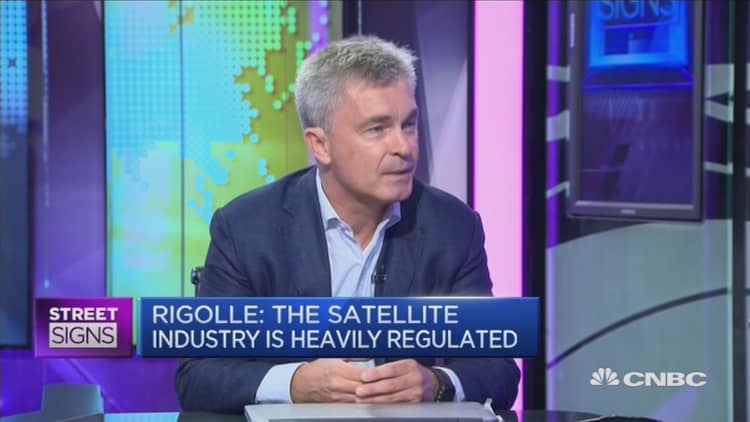
Currently, network providers rely heavily on fiber optic cables to transport data as opposed to the slower-transmitting satellites. However, Leosat Enterprises will change that.
"We can beat fiber at its own game," Mark Rigolle, CEO of LeoSat enterprises, told CNBC's "Street Signs."
To that end the company plans to launch a satellite system in 2019 that would place 108 satellites in low-Earth orbit, which is 25 times closer compared to typical geostationary satellites.
The constellation of satellites would be "at 1,400 kilometers distance (above Earth) only, but really hugging Mother Earth," Rigolle said. This would lead to the creation of the fastest, and widest coverage data network.
"For the first time ... satellites can do that," Rigolle said, noting at the same time increased competition among network providers has pushed data prices down.
But Leosat plans to remain competitive by positioning itself as a premium service, as it caters to latency-dependent network users, such as stock exchanges and high frequency traders.
"We thought we had oil and gas, maritime, and telcos as target markets. And then we started talking about this at conferences and so on, and people came to us and said, hey, we could use this for remote media production, so we don't have to have a production crew and a truck roll to go to St. Andrew's for the Gulf once a year."
The network would also be extremely difficult to hack into. It's a cause for relief, given the recent cyber attacks.
A user of Leosat's system would physically be on a single and secure infrastructure as compared to fiber optics, which uses a patchwork of systems that interconnect, with each of those interconnection points being susceptible to an interception.
"Nothing is 100% un-hackable," Rigolle said, "but we're as close as you can get."

